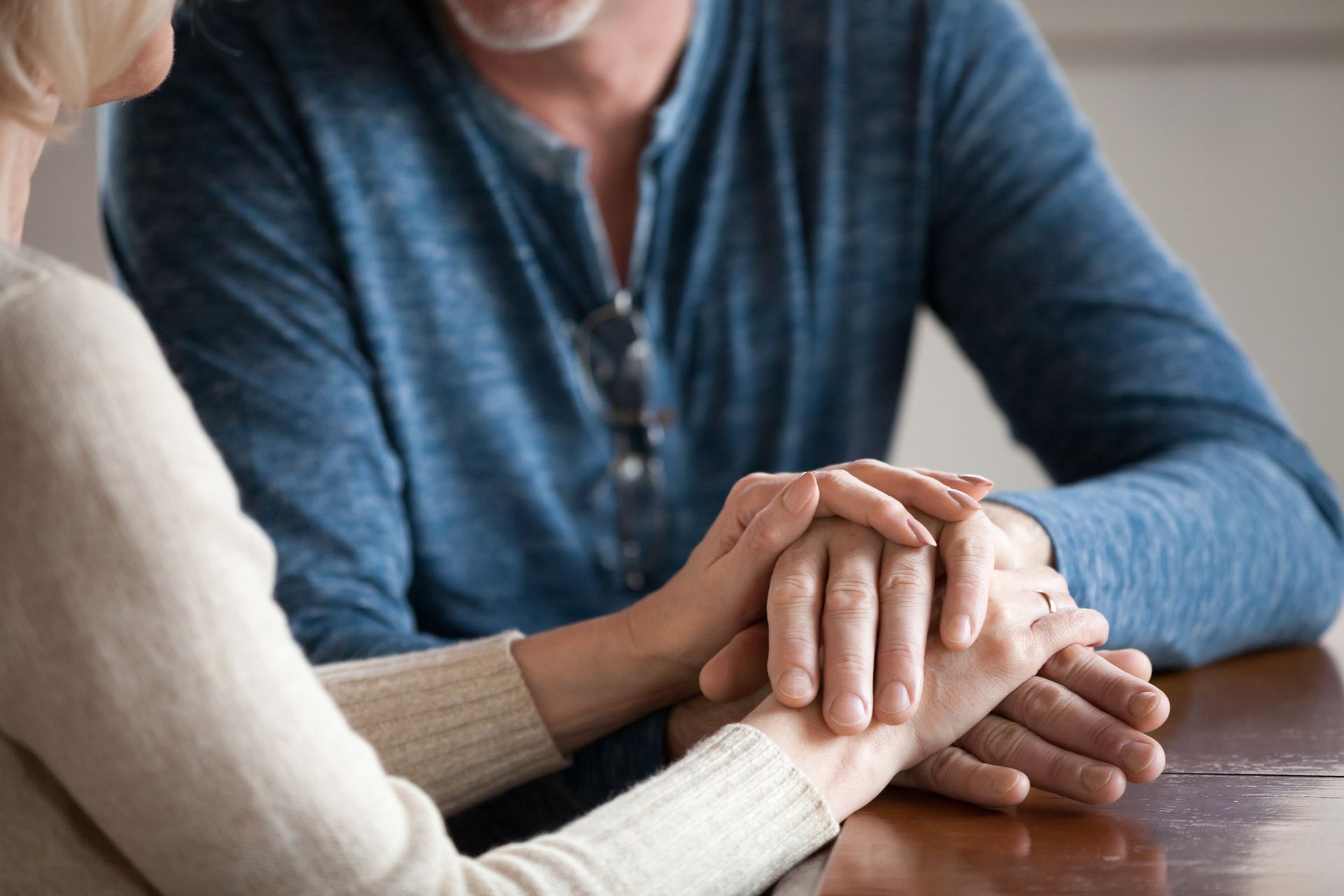Surviving Valentine's Day: A Self-Care Guide for Survivors of Betrayal Trauma
Dealing with betrayal trauma can make emotionally charged days—like Valentine’s Day—even more challenging. But you can turn this potentially triggering event into a time for personal recovery, healing, and even joy.
When it comes to healing from betrayal trauma, there are things you want to avoid and things you need to do to fill that void. Let’s talk about the boundaries you might want to reinforce during this lovey-dovey season first.
What to Avoid to Care for Your Heart around Valentine’s Day:
Avoid Social Media Triggers: Doomscrolling social media is generally bad for your mental and emotional health, but it’ll probably be worse around Valentine’s Day.
- Solution: Curate or Disconnect. Consider unfollowing or muting accounts that trigger negative feelings or take a break from social media around V-Day.
Avoid High-Pressure Social Situations: Just because it seems like everyone is out at bars or restaurants with their significant other doesn’t mean you need to be out, too. If crowded gatherings or couple-centric events feel overwhelming, it’s perfectly okay to decline invitations.
- Solution: Skip Overwhelming Events. Protect your emotional space by choosing environments where you feel safe and supported. Keep reading for ideas on how to bring joy and life to that free time.
Avoid Ruminative Thinking: It’s natural to revisit feelings of betrayal, especially around a time that may have once been sweet for you and your partner. Try to gently steer yourself away from rehashing past hurts.
- Solution: Limit “What If” Scenarios. Endless what-ifs will only aggravate your pain. When you notice these thoughts, acknowledge them and then focus on grounding activities (consider downloading our Infidelity Survivor’s Guide for tools to cope with intrusive thoughts).
Avoid Comparisons: Even if you feel like you should be “over it” by now, every person’s healing journey is different. Be gentle with yourself! Comparing your healing process or relationship status isn’t going to help you heal any faster.
- Solution: Stay Focused on Your Journey. Remind yourself that your feelings and timeline are valid and unique. You will have good days and bad days. As Valentine’s Day approaches, implement a self-care plan (ideas below!) that can help nurture your healing.
Avoid Self-Blame: Remember that betrayal trauma is not your fault. Avoid harsh self-judgment or internalizing the betrayal as a reflection of your worth.
- Solution: Practice Self-Compassion. Ask yourself, if your best friend was going through what you’ve experienced, would you be saying the same things to her that you’ve been saying to yourself? Treat your own heart with the same tenderness and compassion you’d extend to someone else.
Reframing Valentine’s Day from Romance to Self-Renewal
While our culture often makes Valentine’s Day into a celebration of romantic love, it actually has much deeper roots and broader implications.
The legend of St. Valentine involves sacrifice, care for others, and acts of kindness. You can embrace that same spirit. Remember: love is resilient, multifaceted, and capable of evolving—even after betrayal.
Your capacity to give and receive care isn’t limited to traditional relationships. It extends to how you treat yourself. Rather than focus solely on romantic love during Valentine’s Day, consider it a celebration of all types of love. Use it to nurture friendships, family bonds, and most importantly, to foster a deep and compassionate relationship with yourself.
Self-Care Strategies for Valentine’s Day
Let’s turn Valentine’s Day into a season of self-love and compassion. Here are some ways you can reframe this holiday and nurture your own healing in the process:
1. Create a Personalized “Valentine’s Day” Plan:
- Plan a Self-Date: Instead of feeling pressured to engage in traditional Valentine’s Day activities, design a day that celebrates you. Whether it’s indulging in your favorite hobby, treating yourself to a favorite meal, or watching a movie that uplifts you, tailor the day to your needs.
- Schedule “Me Time”: Block out time for rest and activities that soothe you—this could include reading, listening to calming music, or enjoying a long walk in nature.
2. Engage in Mindfulness and Grounding Exercises:
- Practice Meditation or Deep Breathing: Mindfulness practices can help keep you grounded and manage overwhelming emotions. Even short periods of meditation can foster a sense of calm.
- Journaling: Write about your thoughts and feelings. Journaling can be a powerful way to process emotions and recognize progress in your healing journey.
3. Connect with Supportive People:
- Reach Out: Whether it’s a trusted friend, family member, or a therapist, connecting with someone who understands and validates your experience can be incredibly healing. If you feel isolated, consider joining a support group (in person or online) for individuals who have experienced similar betrayal.
- Set Boundaries: Let your support network know what you’re comfortable discussing. It’s okay to share selectively and prioritize your emotional safety.
4. Engage in Physical Self-Care:
- Exercise or Move Your Body: Physical activity, even something as gentle as a walk, can boost your mood and help manage stress.
- Sleep and Nutrition: Make sure you’re getting enough rest and nourishing your body with foods that make you feel good. Small acts like these contribute to overall well-being.
5. Allow Yourself to Feel:
- Honor Your Emotions: It’s normal to feel a mix of emotions—sadness, anger, loneliness—and it’s important not to suppress them. Consider giving yourself permission to feel, without judgment.
- Practice Self-Validation: Remind yourself that your feelings are valid. Affirmations or gentle self-talk can reinforce your worth during difficult times.
6. Engage in Therapeutic Activities:
- Creative Expression: Art, music, writing, or any creative outlet can be a cathartic way to express and process your feelings.
- Professional Support: If you’re not already, consider working with a therapist who specializes in trauma or betrayal. A professional can provide tailored strategies and a safe space to explore your feelings.
7. Start a Valentine’s Kindness Card Campaign:
- Bring Love and Compassion to Others: Organize or join a campaign to create handmade, uplifting cards for community members in hospitals, nursing homes, shelters, or even frontline workers.
- Reframe the Day: Focusing on spreading messages of hope and care can reframe Valentine’s Day as a day of generosity and connection rather than loss, while also providing comfort to those who may be feeling isolated.
8. Volunteer at a Local Soup Kitchen or Shelter:
- Provide for Others on Valentine’s Day: Volunteer to help prepare, serve, or clean up at a community event organized for Valentine’s Day.
- Love Is Expressed in Many Ways: And nourishing others can provide a sense of purpose and connection, turning the holiday into a day of shared kindness.
9. Call It Puppy Love
- Volunteer at the Animal Shelter: Spend the day at a local shelter cuddling with cats, walking dogs, or helping with general care and cleaning.
- Seek Out the Unconditional Affection of Animals: Interacting with animals can be a soothing and fulfilling experience. Plus, you’re contributing to the well-being of vulnerable animals.
10. Prepare Self-Care Kits for Others
- Host a Workshop for Care Packages: Coordinate or volunteer with a group of people to assemble self-care kits filled with comforting items like herbal teas, journals, small treats, and encouraging notes you can distribute to people in need, such as residents at shelters or those battling isolation.
- Care Packages Are Practical Ways to Help Others: And this proactive gesture not only blesses those who receive them but also reinforces the giver’s self-worth and ability to spread positive cheer, despite personal challenges.
A Few Final Reminders for Valentine’s Day
Valentine’s Day might bring up extra challenges. Consider planning your day in advance so you feel more in control. This might include setting up a comforting environment at home or planning a low-key activity that reinforces your self-worth.
Remember, healing is not linear. Some days may feel harder than others, and that’s okay. Celebrate the small victories and remind yourself that it’s perfectly okay to prioritize your healing over societal expectations.
And finally, use this day to revisit your goals: Reaffirm your personal goals and self-care practices. Whether it’s through journaling, meditation, or reaching out to a friend, make choices that support your long-term well-being.
Every person’s journey with betrayal trauma is unique. It’s important to tailor these suggestions to what feels most supportive for you. Remember, you deserve care, understanding, and the space to heal at your own pace. If at any point your emotions feel too overwhelming, consider reaching out to a mental health professional who can provide additional guidance and support.
If you could use some extra support, Hope & Freedom Counseling Services offers 3-Day Trauma Intensives for Betrayed Partners, as well as a self-paced online video series called I Must Heal: Healing from Your Partner’s Sex Addiction to support your healing journey. You can renew, rebuild, and restore your life.




